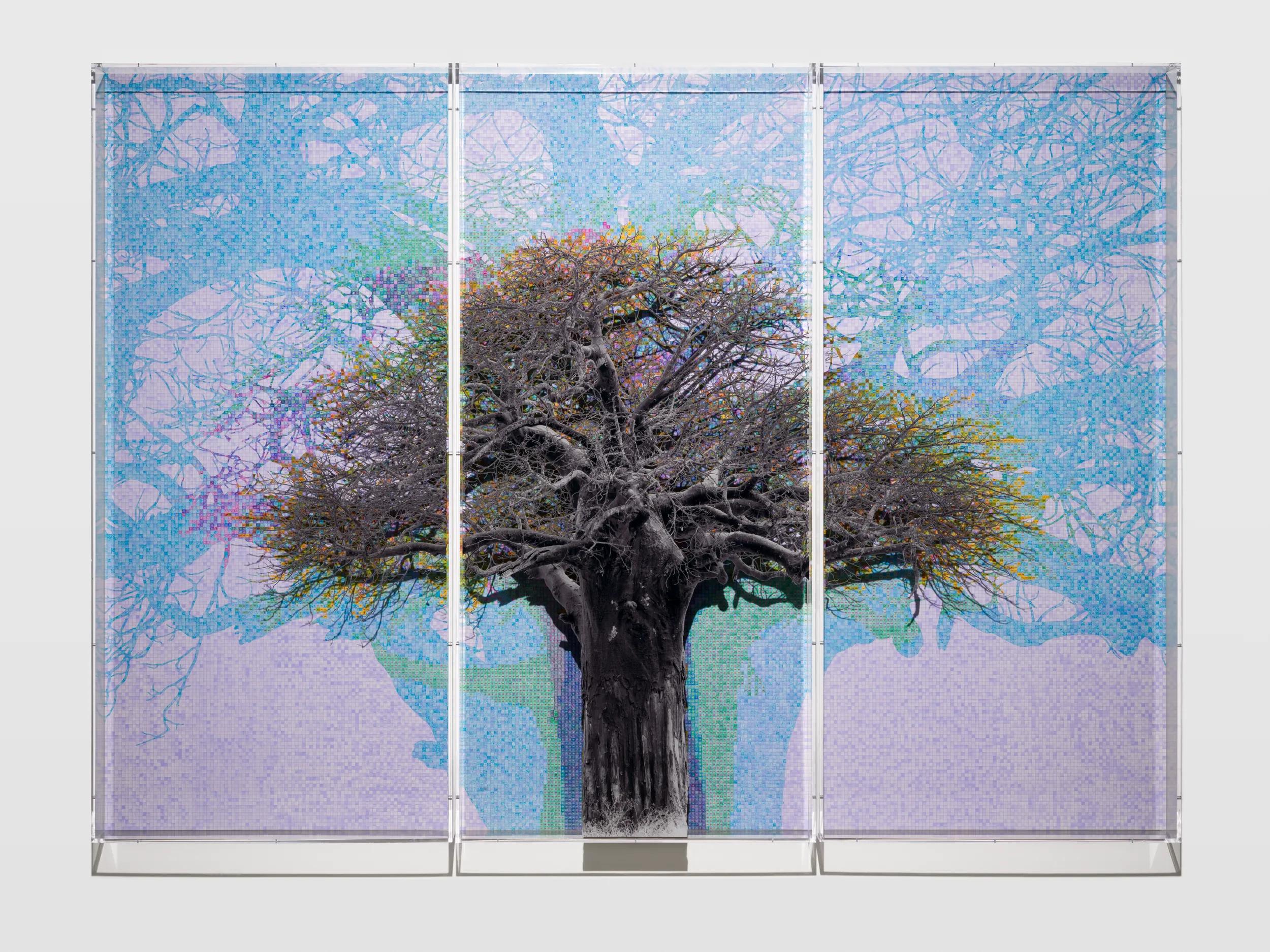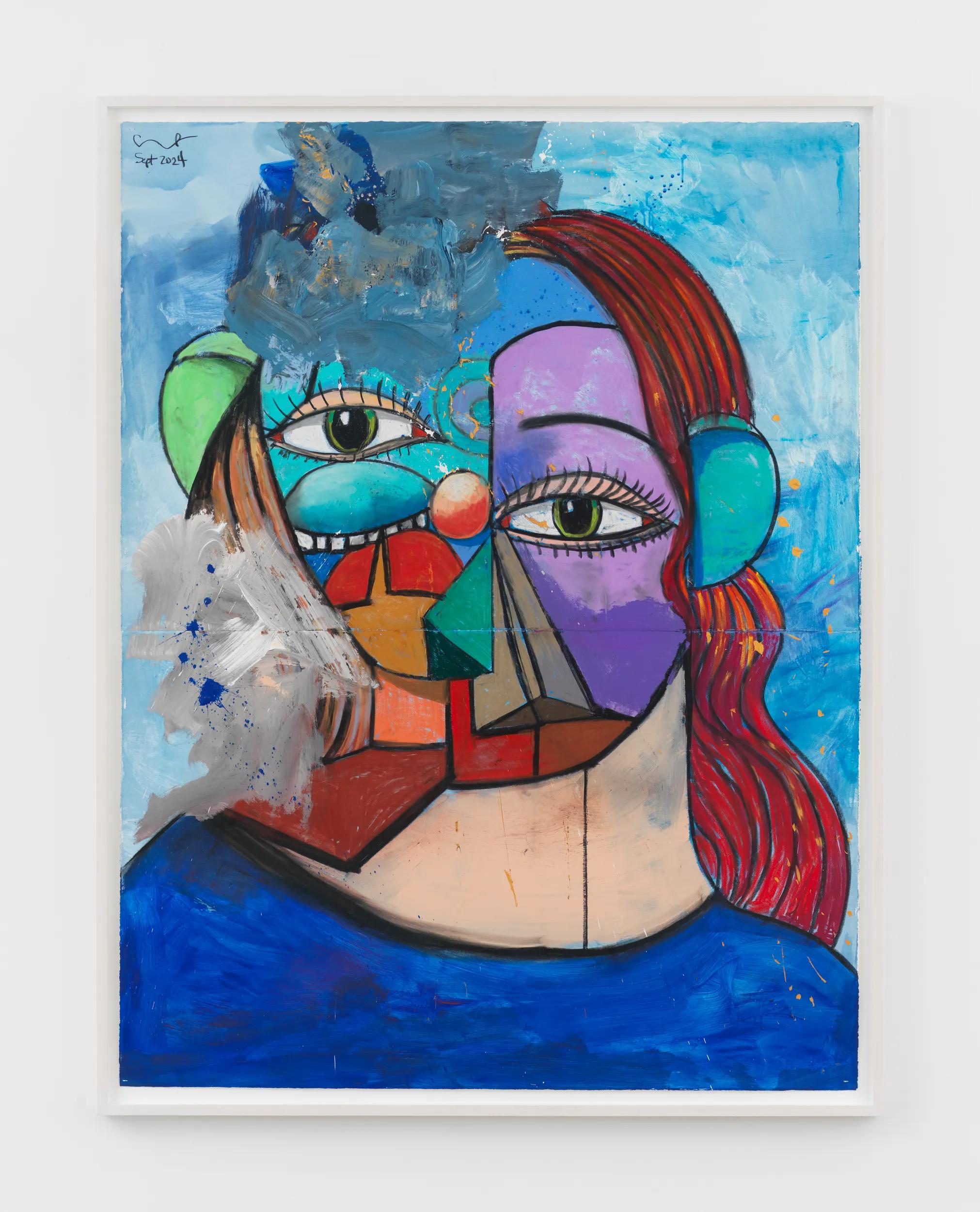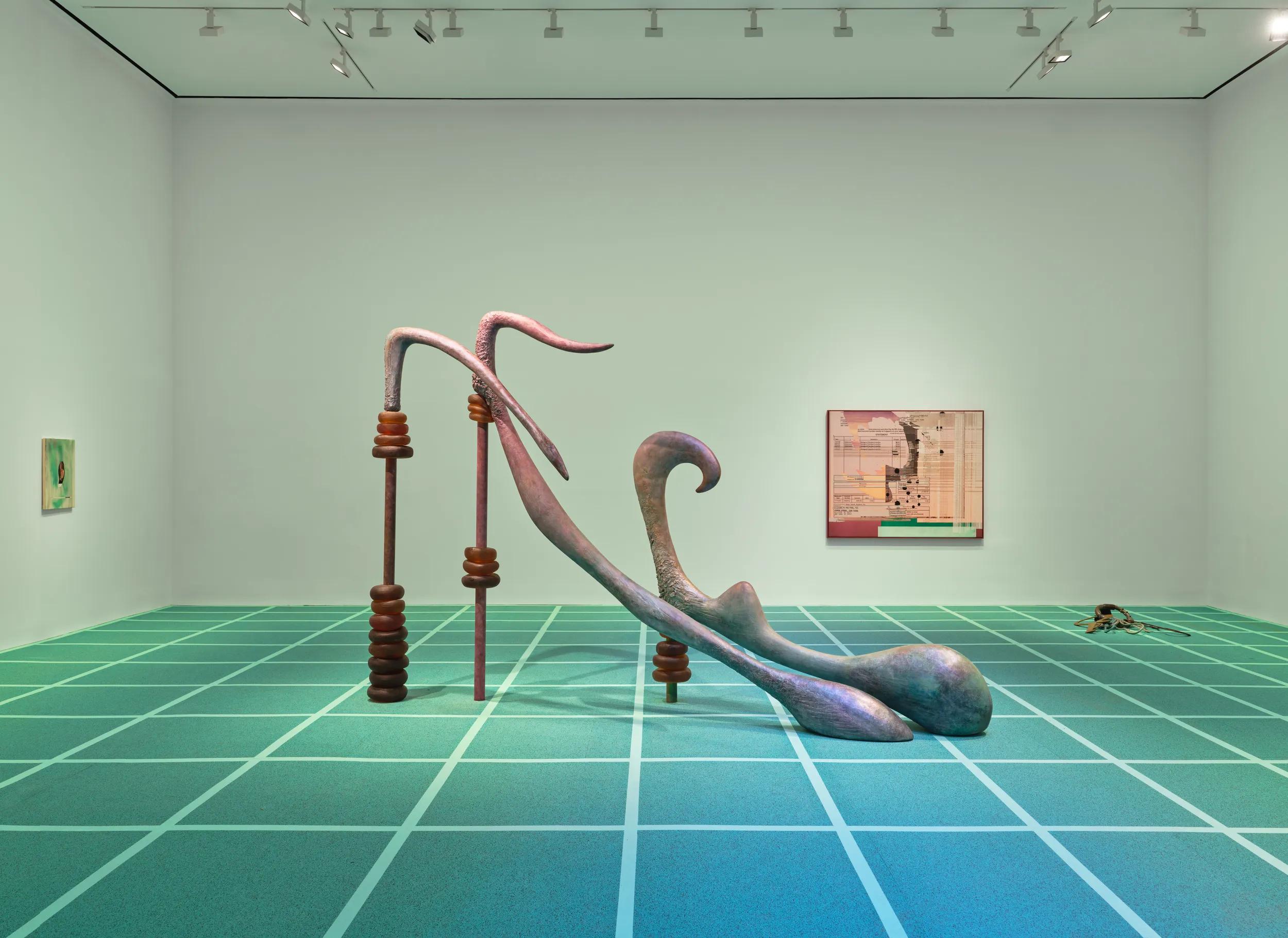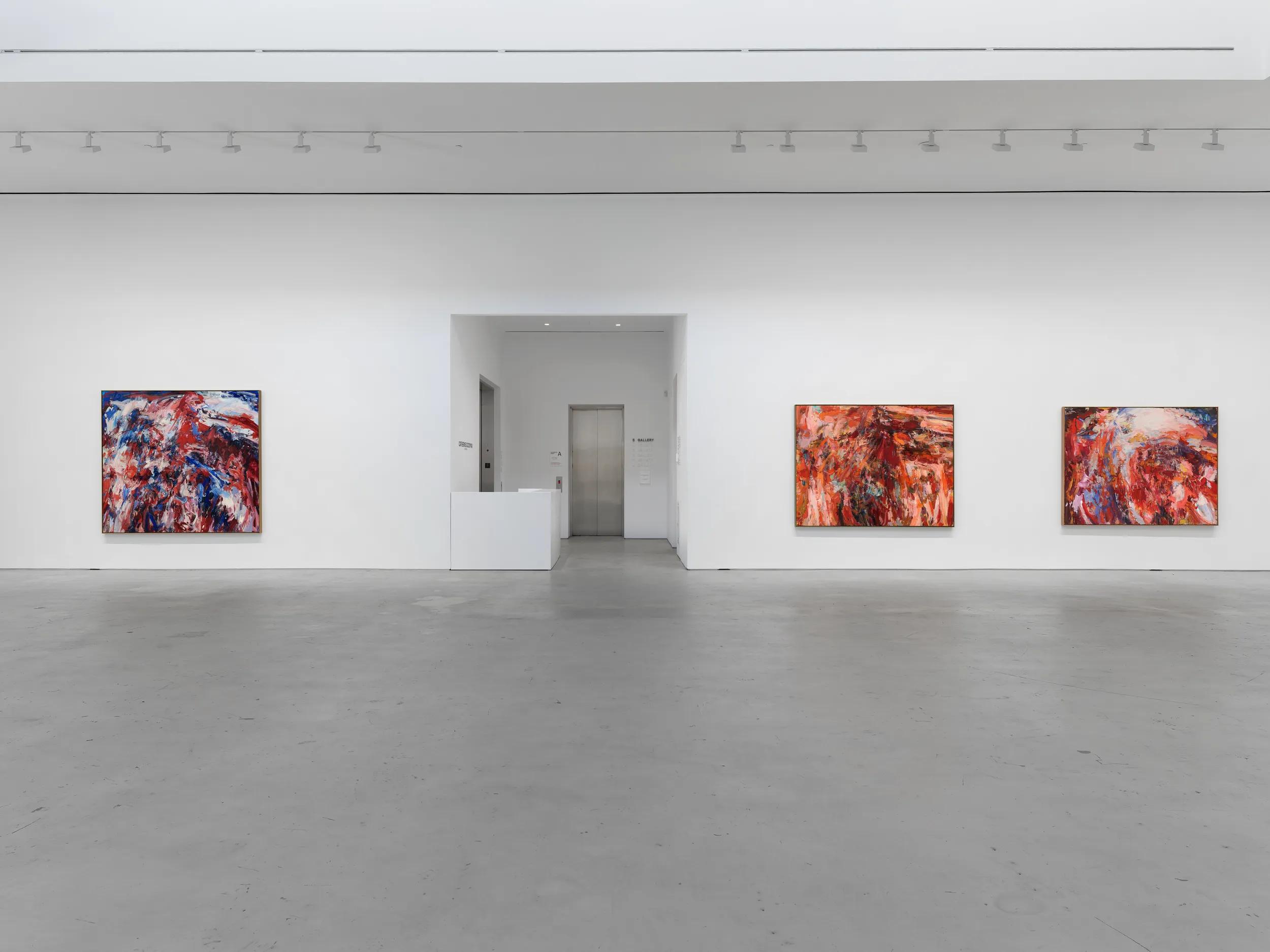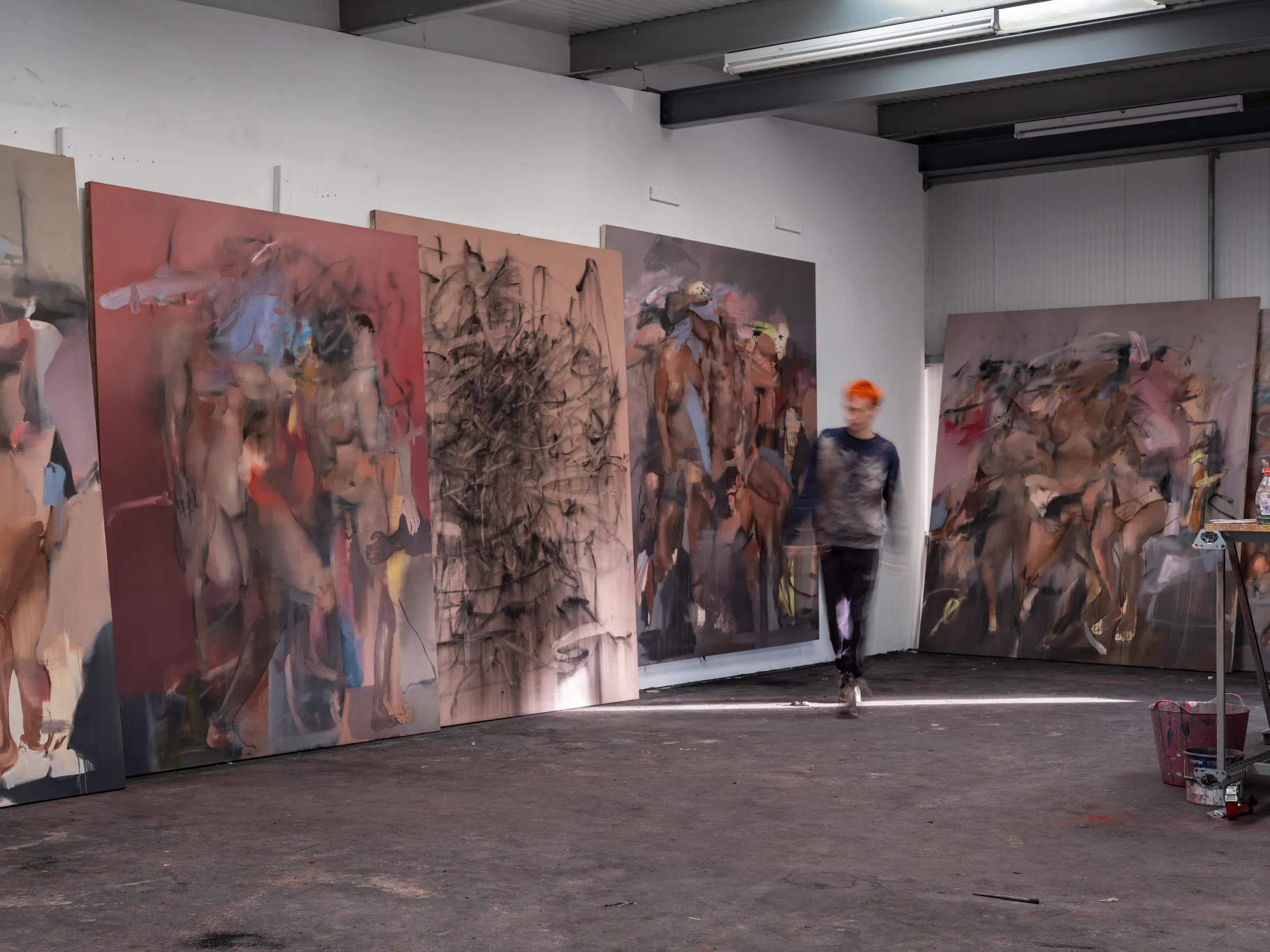
Lee Lozano
Drawings & Paintings
14 May - 31 July 2015
New York, 18th Street
Beginning 14 May, 2015, Hauser & Wirth is proud to present ‘Lee Lozano. Drawings & Paintings’, an exhibition that brings together a group of works from years of 1964 and 1965, a critical time of development for the artist.
Lozano’s art, produced over the course of little more than a decade, is striking for its breadth and energy, and admired for its daring physicality and tirelessness in investigating the body and issues of gender. In short, Lozano’s oeuvre comprises a search for a truly authentic form of expression. Standing apart from the detached and rarified conceptual art of her time, Lozano merged art and life, images and ideas together, in works characterized by a unique use of paint, language, and action.
‘Lee Lozano. Drawings & Paintings’ will remain on view at Hauser & Wirth’s 18th street location through 31 July 2015.
Central to the exhibition are five-large scale paintings, each titled after a verb – ‘Pitch’, ‘Slide’, ‘Lean’, ‘Swap’, and ‘Cram’. Rendered in dark, smoky tones and lustrous metallic colors, these nearly abstracted canvases are visual distillations of force. Insistently physical, pigment and pencil are felt as solid matter and concentrated energy. They emerged from Lozano’s renowned Tool Paintings of the early 60s, which depict screwdrivers, bolts, wrenches, clamps, and hammers so anthropomorphized that they appear to be objects in sexualized motion. However, in the canvases on view at Hauser & Wirth, the provocative and aggressive emotional intensity has shifted away from figuration and derives instead from the extraordinary way in which Lozano worked.
In the verb paintings, the hard edges of the Lozano’s tools have morphed into optically complex geometric forms; their punning, overtly sexual connotations are concentrated here into a profound investigation of matter. Using three-inch housepainters’ brushes to create a finely ridged, slightly reflective surface, Lozano conveys the shape and directional thrust of her forms and suggests a full-bodied physicality. ‘It’s not just surface roundness that turns me on’, she wrote in 1968, ‘it’s the feeling of density, mass and weight’. In such works as ‘Slide’ (1965) and ‘Lean’ (1965), Lozano has literally clamped her canvases together, compounding their physicality along the straight, sharp geometric lines where form and color converge. Employing oil paint for its rich, tactile, and sensual qualities, Lozano achieves thick monochromatic fields of color, rendering images that teeter between three-dimensional spatiality and the planar two-dimensional surface. The verb paintings balance illusionist impressions with sharp points, angles, and spiraling cone-shaped forms.
It is noteworthy that Lozano’s verb paintings predated and anticipated Richard Serra’s inventory of actions titled ‘Verb List Complication: Actions to Relate to Oneself’ (1967 – 1968). In her notebooks, Lozano compiled a list of the titles of the paintings that she had produced between 1964 and 1967. Underlining the heading of the list, which appears in block capital letters, she explicitly indicated that her paintings were ‘ALL VERBS’. That list comprises twenty-nine titles and conveys the pleasure Lozano took from allowing objects to engage with double-edged meanings – tensions between the erotic and the violent, the mechanical and the organic.
Also on view at Hauser & Wirth will be a group of drawings in graphite on paper. These small preparatory drawings reflect the artist’s formal training. Meticulously prepared and calculating in her precision, Lozano pushed her ideas and studies for canvases to extremes. On lab book pages, beside the studies, she would work out mathematical proportions, reworking and examining every angle, literally making note that ‘angle CAB = angle EDG’. In a sort of physical endurance contest, Lozano labors over the act of creating art, exerting an energy and coercive charge that manifests and infuses her abstract forms with a sense of palpable three-dimensionality.
About the Artist
Lee Lozano left New York in 1972, staging her own exit and disengaging herself from the art world completely. She eventually settled in Dallas, Texas where she lived until her death in 1999. Her short lived but influential career remains a source of fascination, lauded by Lucy Lippard as the foremost female conceptual artist of her era in New York.
Since 1998, Lozano’s work has been subject to an intensive re-evaluation. Major exhibitions include: ‘Lee Lozano. MATRIX: 135’, Wadsworth Atheneum, Hartford CT (1998); ‘Lee Lozano. Drawn from Life: 1961 – 1971’, MoMA PS1, New York NY (2004); ‘Win First Don’t Last/Win Last Don’t Care’, Kunsthalle Basel, Switzerland (2006), travelled to Van Abbemuseum, Eindhoven, Netherlands (2006); ‘“SEEK THE EXTREMES…” Lee Lozano’, Kunsthalle Wien, Vienna, Austria (2006); ‘Lee Lozano. Retrospective’, Moderna Museet, Stockholm, Sweden (2010). Lozano’s work was presented at documenta 12 in Kassel, Germany in 2007.
In her lifetime, Lee Lozano’s work was the subject of a solo exhibition at the Whitney Museum of American Art in New York NY (1970) and was shown at Green Gallery in New York NY (1964,1965).
Installation views


Related Content
About the Artist

Lee Lozano
Lee Lozano’s paintings are admired for their energy, daring physicality and tirelessness in investigating the body and issues of gender. Although lauded by Lucy Lippard in 1995 as the foremost female conceptual artist of her time, Lozano had disengaged herself from the New York art world completely by the early 1970s. She left behind a body of work of striking formal breadth and complexity. Lozano fought to consolidate her artistic self in a realm void of systems, rules, and group consciousness. She pursued a wholly independent solo studio practice, which culminated in her rejection of the New York art world and a boycott of women. She first refused to attend public art world functions and withdrew from exhibitions, finally relocating to Dallas, Texas. ‘By refusing to speak to women,’ says Helen Molesworth, Chief Curator of LA MOCA, ‘she exposed the systematic and ruthless division of the world into categories of men and women. By refusing to speak to women as an artwork, she also refused the demand of capitalism for the constant production of private property… The strategy of rejection is a powerful one.’
Current Exhibitions
1 / 12








